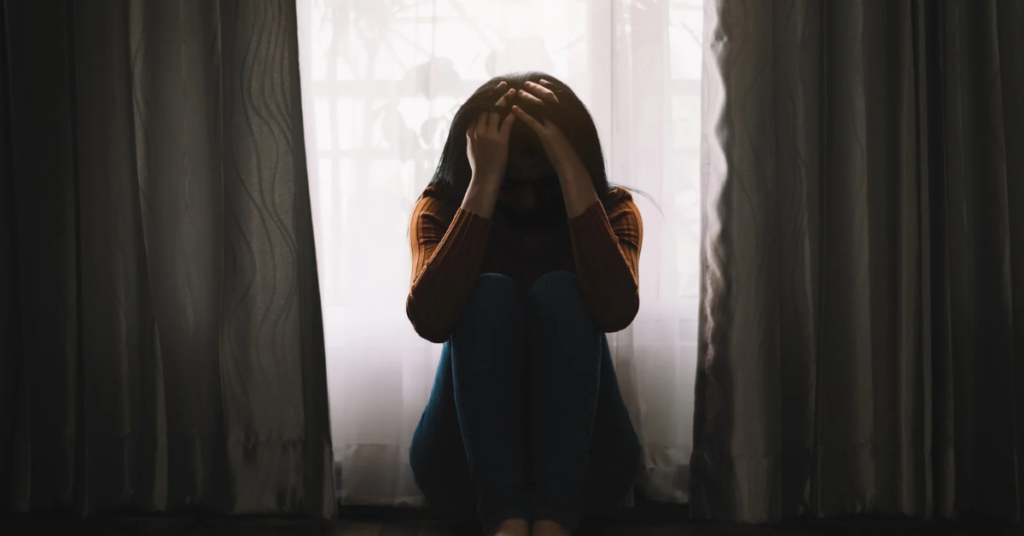
Introduction: A Gentle Start to Healing After Betrayal
Healing after betrayal is one of the hardest journeys you may ever walk. It shakes your trust, confidence, and peace. Whether it came from a partner, a friend, or even family—it hurts in ways words can’t fully capture. If you’ve found yourself lying awake, wondering how things fell apart, you’re not alone.
Many women go through this. You might feel like your world has been flipped upside down. It’s okay to feel lost, angry, or even numb. These feelings aren’t wrong—they’re just part of what happens when your heart breaks.
But healing comes in stages. And no, it’s not a straight road. Some days you’ll feel strong, other days not so much. That’s normal. You’re not expected to “move on” overnight or bounce back like nothing happened.
Think of healing like a spiral staircase. You go up, you circle around, and sometimes it feels like you’re in the same place again. But you’re not. You’re rising, slowly but surely.
Every woman’s journey looks different. Some find strength in quiet solitude, others in deep conversations. Some rediscover joy in new routines or creative passions. Your way is the right way—as long as it feels real to you.
At GrowMyHappiness, we’re here to support women like you. We don’t rush your process. We walk with you, gently, helping you reconnect with your sense of self and purpose.
You don’t need to have it all figured out. You just need to take one honest step at a time.
So if you’re searching for clarity, comfort, or courage—welcome. This is your safe space to start again, one heartbeat of hope at a time.
Stage 1: Shock & Denial – “This Can’t Be Happening”
The first step in healing after betrayal often feels like stepping into a fog. Everything looks the same, but nothing feels real.
You might catch yourself thinking, “This isn’t really happening, right?” That’s denial doing its job. It’s your mind’s way of protecting you from emotional overload.
Confusion is common. You may replay conversations or search for clues. Numbness might set in—you go through your day, but feel distant. Or maybe you cry without warning and don’t understand why.
It’s all normal. Truly. Shock and denial aren’t weaknesses. They’re part of your body’s built-in response to emotional trauma.
Think of this stage like an emotional cushion. Your heart is in shock, and your brain is giving it time to catch up.
So what helps? Slow everything down. Say no to big decisions. Say yes to gentle routines. Let yourself rest more, cry more, journal more. Wrap yourself in a soft blanket, sip warm tea, and breathe deeply. These little things matter.
Talk to someone safe—a friend, coach, or support group. You don’t have to explain it all. Just be heard.
This stage won’t last forever, even if it feels endless now. One day, you’ll wake up and notice the fog is lifting, just a bit.
GrowMyHappiness believes that your healing is sacred. And right now, doing less is doing enough. You’re not broken—you’re in the beginning of becoming whole again.
Stage 2: Emotional Overload – “Why Me?”

This stage hits hard. One minute you’re crying, the next you’re furious. It’s a rollercoaster of rage, sadness, betrayal, and self-doubt.
You might ask yourself, “What did I do wrong?” or “Why wasn’t I enough?” These thoughts are painful—but very normal.
Many women in healing after betrayal feel guilt or shame. You might blame yourself for not seeing the signs or for trusting too easily. But here’s the truth: betrayal says more about the betrayer than you.
Let those feelings come. You don’t need to hide them. Cry if you need to. Scream into a pillow. Write angry letters (you don’t have to send them). Emotional release is not weakness—it’s release.
At GrowMyHappiness, we remind women that every emotion deserves space. You’re not being “too much.” You’re being real. And real is strong.
A helpful tip? Don’t judge your feelings. Just name them. “I feel angry and disappointed.” “I feel exhausted.” Naming brings clarity and calm.
One woman once told us, “I thought falling apart meant I was failing. But it was actually the start of rising.”
This stage is messy. But it’s also powerful. Feel it all. Let it out. You’re clearing space for healing to begin.
Stage 3: The Isolation Phase – “I Can’t Trust Anyone”
After the storm of emotions, silence creeps in. You may feel like pulling away from everyone—and that’s completely okay.
In this stage of healing after betrayal, many women withdraw. You might overthink every past conversation. Maybe you replay moments and wonder if you missed red flags.
Trust feels risky now. Building emotional walls can feel like the only way to stay safe.
But here’s the thing—you’re not broken for needing space. You’re protecting your heart, and that’s valid. Just remember, isolation is a pause, not a permanent home.
Journaling helps during this time. Write out your thoughts without worrying if they make sense. Let the words flow freely.
Guided reflections are also powerful. Ask yourself: What do I need right now? What am I afraid of? Don’t rush answers—just be honest.
Another key? Start setting small, healthy boundaries. Not to shut people out, but to honor what you need.
At GrowMyHappiness, we guide women through these quiet spaces. We remind you: solitude can be healing, not lonely.
Use this time to reconnect with yourself. Take long walks. Sit in sunlight. Listen to your breath.
You’re not lost. You’re simply turning inward—and sometimes, that’s where the deepest healing begins.
Stage 4: Reclaiming Identity – “Who Am I Without This Pain?”

At some point during your healing after betrayal, a powerful question pops up: Who am I now?
It’s normal to feel lost here. Maybe your identity was wrapped around the relationship, the role you played, or someone else’s needs.
Now that things have changed, you may wonder what’s left. But here’s the good news—you’re still here. And you are more than what happened to you.
This is the stage where you start to find value beyond the pain. You might rediscover old passions. Or realize you love your own company.
One woman once told us, “I forgot how much I loved painting until I had silence again.” Your joy is still there—just waiting to be heard.
At GrowMyHappiness, we help women reconnect with their worth. Through coaching, you explore your strengths, dreams, and voice—all the parts that may have gotten quiet over time.
Start small. Try new things. Wear colors that make you smile. Say “no” when it feels right. You’re creating a version of yourself that isn’t shaped by betrayal—but by truth.
You don’t have to have all the answers. Just know this: you are already enough, exactly as you are.
Stage 5: Setting Intentions – “What Do I Want Now?”
After the heavy feelings settle a bit, a softer question rises: “What do I want now?” It’s not about fixing everything or getting busy. This part of healing after betrayal is about setting gentle, heart-centered intentions.
You’re not chasing productivity—you’re tuning into peace. What feels good? What sparks even a little curiosity?
This stage is where you slowly begin to rebuild. Maybe you try a new morning routine, reconnect with someone kind, or join a supportive group.
Start small. Maybe you set an intention like, “I want to feel more calm this week,” or “I’ll spend ten minutes outside each day.” These quiet changes add up.
At GrowMyHappiness, we use clarity exercises to help women rediscover their power. Journaling prompts, vision boards, and gentle reflection help you see what you truly want—not what others expect.
One woman we coached said, “I stopped chasing goals and started creating space for joy. That changed everything.”
This is your time to explore, not perform. Give yourself permission to dream again—on your terms.
You’re not just healing. You’re redefining your path, one intention at a time. And that’s a beautiful, brave step forward.
Stage 6: Opening Up – “I’m Ready to Trust Again… Slowly”

This stage of healing after betrayal feels like standing at the edge of a pool—testing the water with one toe.
You’re not rushing in. You’re not pretending everything’s okay. But you’re curious again. You’re wondering if maybe, just maybe, trust is possible.
It’s a brave thought. And yes, vulnerability is strength—not weakness. You’ve survived pain, and now you’re learning how to let others in without losing yourself.
There’s a difference between being cautious and being closed. Cautious means you honor your gut. You pause, observe, and move with care. Closed means you’ve locked the door completely.
At GrowMyHappiness, we help women rebuild trust gently. Life coaching tools like mindful journaling and self-awareness exercises can guide you as you open up again.
Start by noticing who makes you feel safe and seen. Maybe it’s a friend, a sibling, or even a support group. Let connection grow naturally—no pressure, no timeline.
One woman once shared, “I used to think healing meant never being hurt again. Now I know it means choosing connection anyway.”
You don’t have to dive in. Just take one small step at a time. Your heart knows how to heal—and how to love again, wisely.
Stage 7: Thriving Beyond Betrayal – “This Doesn’t Define Me”
This is the stage where something shifts. You look back and think, “I made it through.” Not untouched—but definitely stronger.
Healing after betrayal doesn’t mean forgetting what happened. It means you no longer let it rule your life.
You’ve integrated the pain into your story, but it’s not the headline anymore. It’s just a chapter—and not the final one.
Now, little things bring joy again. You laugh more. You sleep better. And you feel peaceful, even if everything isn’t perfect.
Many women describe this phase as coming home to themselves. Gratitude grows here. So does confidence. You start to trust your own strength.
At GrowMyHappiness, we often remind women: healing is ongoing, but so is thriving. You’re allowed to feel good. You’re allowed to celebrate.
This is where purpose blooms. Maybe you share your story. Maybe you mentor someone else. Or maybe you simply enjoy the quiet pride of becoming whole again.
One woman once told us, “I thought betrayal broke me. But it actually brought me back to myself.”
You’ve come far. Be proud. And remember, even in the calm, healing keeps unfolding—quietly, beautifully, and always in your own time.
Conclusion
If you’ve seen yourself in any of these stages, take a deep breath—you’re not alone. And there’s no “right” way to move through them.
Healing after betrayal isn’t a straight line. Some days feel like progress. Others feel like starting over. That’s okay. Every step you take still counts.
Please know this: asking for help doesn’t make you weak. It makes you wise. Strong women seek support, and there’s strength in being seen.
You’re doing the hard work of rebuilding. That deserves kindness, not pressure.
Life coaching can help you move gently through these stages. It offers a safe space to pause, reflect, and grow. Whether you’re still in shock or just starting to trust again, guidance matters.
At GrowMyHappiness, we walk beside women—not ahead, not behind. Just beside. We offer tools, encouragement, and presence, especially when the path feels uncertain.
As one of our clients once said, “Healing didn’t fix me—it reminded me I was never broken.”
If you’re looking for someone to walk beside you, GrowMyHappiness is here when you’re ready.
And when you are—take a look at our free resources, journaling prompts, or gentle coaching sessions. You don’t have to do this alone.
Your story continues from here—and this time, it’s written by you.
